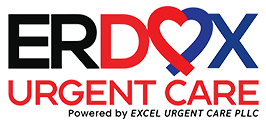
Understanding Mononucleosis
Mononucleosis, often referred to as “mono” or the “kissing disease,” is an infectious illness most commonly caused by the Epstein-Barr virus (EBV). Understanding this commonly occurring condition is essential for maintaining good health and preventing its spread.
This blog post aims to provide insights into mono, shedding light on its transmission, symptoms, prevention strategies, and care methods. Whether you’re seeking information about the disease or experiencing its symptoms, this guide aims to equip you with valuable knowledge.
Stay tuned as we unravel the mystery behind mononucleosis, exploring not only the familiar symptoms but also diving into lesser-known facets of this viral infection.
What is Mononucleosis?
Mononucleosis is a viral infection primarily caused by the Epstein-Barr virus (EBV), a member of the herpesvirus family. This common illness is often transmitted through saliva, earning its nickname, the “kissing disease.” However, close contact with an infected individual, sharing utensils, or even coughing and sneezing can facilitate its spread.
Key Facts about Mono:
Transmission: EBV can spread through saliva, which can remain contagious for months after initial infection. Close personal contact, such as kissing or sharing drinks or utensils, can facilitate transmission.
Affected Age Groups: Mono commonly affects adolescents and young adults but can occur at any age.
Incubation Period: The incubation period for mono ranges from 4 to 8 weeks, during which an infected person may not exhibit symptoms but can still spread the virus.
Understanding these fundamental aspects of mononucleosis helps in recognizing its potential transmission methods and affected demographics.
Lesser-Known Facts about Mono
Beyond its common symptoms, mononucleosis can manifest in various ways, and there are interesting aspects that might not be widely recognized:
Uncommon Symptoms: Apart from the typical symptoms of fatigue, sore throat, and swollen lymph nodes, mono can occasionally exhibit atypical symptoms such as rash, abdominal pain, or jaundice.
Variations in Severity: The severity of mono can vary significantly among individuals. Some may experience mild symptoms resembling a common cold, while others might face more intense fatigue and prolonged discomfort.
Potential Complications: In rare cases, mono can lead to complications like an enlarged spleen, liver inflammation (hepatitis), or, in very rare instances, complications involving the nervous system.
Understanding these less-discussed facets of mononucleosis can help individuals recognize its diverse presentation and potential complications.
Common Symptoms of Mononucleosis
Recognizing the typical symptoms of mononucleosis is crucial for early identification and prompt medical attention:
Fatigue: Overwhelming fatigue that can persist for weeks is one of the hallmark symptoms of mono. This fatigue might not alleviate with rest and can significantly impact daily activities.
Sore Throat: A persistent, severe sore throat, often accompanied by swollen tonsils and difficulty swallowing, is a common early sign of mono.
Swollen Lymph Nodes: The lymph nodes, particularly in the neck and armpits, may become swollen and tender.
Fever: Fever, sometimes accompanied by chills, is another prevalent symptom of mononucleosis.
Other Symptoms: Additional symptoms can include body aches, headache, loss of appetite, and occasionally, a rash.
Recognizing these common symptoms is essential. However, it’s crucial to note that symptoms may vary from person to person, and some individuals may exhibit only a few or even no symptoms at all.
Prevention Tips
While there’s no guaranteed way to completely prevent mononucleosis, certain measures can significantly reduce the risk of contracting and spreading the virus:
Practice Good Hygiene: Regular handwashing, especially after contact with potentially contaminated surfaces or before meals, helps minimize the risk of spreading the virus.
Avoid Sharing Personal Items: Refrain from sharing utensils, drinks, or personal items, particularly with individuals exhibiting symptoms of infectious illnesses.
Limit Close Contact: Minimize close contact, especially kissing or sharing drinks, with individuals known to have mono or any symptoms resembling the illness.
Boost Your Immune System: Maintain a healthy lifestyle, including a balanced diet, adequate sleep, regular exercise, and managing stress, to strengthen your immune system.
Seek Medical Advice: If you suspect you’ve been exposed to someone with mono or experience symptoms, seek medical advice promptly for proper diagnosis and guidance.
By adopting these preventive measures, individuals can reduce their risk of contracting mononucleosis and prevent its spread within our communities!
Care and Recovery
For individuals diagnosed with mononucleosis, here are essential care methods to ease symptoms and support recovery:
Rest: Prioritize ample rest to allow your body to fight the infection effectively. Avoid strenuous activities that might exacerbate fatigue.
Hydration: Stay well-hydrated by drinking plenty of fluids, especially water and soothing beverages like herbal teas or warm broth.
Over-the-Counter Medications: Over-the-counter pain relievers like acetaminophen or ibuprofen can help alleviate symptoms such as fever and sore throat. However, consult a healthcare professional before taking any medications.
Symptomatic Relief: Gargling with saltwater, using throat lozenges, or utilizing a humidifier can offer relief for a sore throat and ease discomfort.
Monitoring Complications: Be vigilant for any signs of complications, such as severe abdominal pain, difficulty breathing, or jaundice, and seek immediate medical attention if these occur.
Remember, while these measures can help manage symptoms, it’s crucial to consult a healthcare professional for personalized guidance and to monitor your condition closely.
Our Urgent Care Center
If you’re experiencing symptoms of mononucleosis or suspect you might have been exposed to the virus, consider visiting our Urgent Care Center for prompt diagnosis and appropriate guidance.
Benefits of Seeking Professional Care:
- Prompt Diagnosis: Our experienced healthcare professionals can conduct tests to confirm whether your symptoms are due to mononucleosis or another illness with similar presentations.
- Personalized Treatment: Receive personalized care and guidance tailored to your specific condition and needs.
- Preventing Complications: Timely intervention can help prevent potential complications and ensure a smoother recovery process.
Please don’t hesitate to reach out to our dedicated team of medical professionals. if you have concerns or suspect you might be affected by mononucleosis. Your health and well-being are our top priorities. We are available seven days a week, and treat many of the most common illnesses, injuries, and ailments!
Conclusion
Understanding mononucleosis is pivotal for recognizing its symptoms, adopting preventive measures, and seeking appropriate care when needed. Here’s a recap of the key takeaways:
- Awareness Matters: Being informed about mononucleosis aids in early recognition and timely intervention.
- Recognizing Symptoms: Familiarize yourself with the common symptoms of mono to seek timely medical attention if needed.
- Prevention is Key: Implementing preventive measures can reduce the risk of contracting and spreading the virus.
- Seek Professional Help: If you suspect you have mono or experience symptoms, consider visiting our Urgent Care Center for a prompt diagnosis and personalized care.
Take the First Step Towards Your Health: Visit our Urgent Care Center or contact us for professional guidance, accurate diagnosis, and personalized care. Our dedicated team is here to support you on your journey to wellness.
Remember, your health matters. Stay informed, stay proactive, and reach out to us if you have any concerns regarding mononucleosis or any other health-related questions.
© Excel Urgent Care and Affiliates 2023

